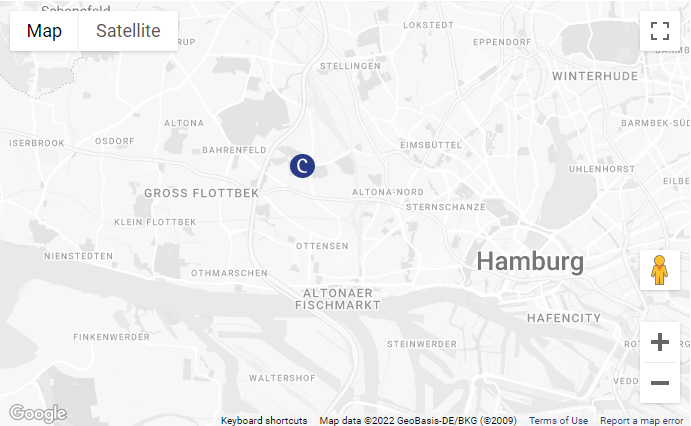Crisis communication
You cannot not communicate."Mastering crisis communication: Act, inform, gain trust!"
Mistakes happen, to everyone! The difference is in how companies deal with them. When a company is in a crisis situation, the right communication is most important. In fact, your crisis communication determines how your crisis management is perceived in the event of an incident. For crisis communication to be effective and efficient, it must be prepared to inform employees, customers, business partners and stakeholders about current issues and challenges. The goal is to ensure that your company responds quickly, appropriately and consistently in the event of a crisis. Good crisis communication offers the opportunity to show strength, maintain trust and enhance your own image. Our consulting services help you develop effective and efficient crisis communications, test and extend the resilience of existing structures, systems and procedures, and develop your existing organisation. In all areas of proactive and reactive crisis communication, we assist you with our practical expertise.Professional crisis communication protects your company's reputation
Setting up solid and concrete crisis communication structures is of great importance for all companies, institutions and governments, because before and during a crisis, you can't not communicate. The digitised and 24/7 networked society and media landscape has further emphasised the importance of professional crisis communication. The aim of effective, efficient and prepared crisis communication is to plan crises in advance to generate certainty of action to meet information needs and successfully cope with current crises. Crisis communication is a central means of building and protecting a good reputation, both internally and externally.Our crisis communication consulting services:
-
Emergency Response Audit (ERA) - Crisis Communication
The Emergency Response Audit (ERA) is an important tool to identify your existing crisis communication structures and analyse their strengths and development opportunities. Based on the ERA, further structures (crisis communication strategy, stakeholder analysis, crisis communication plan) can be created or adapted. The aim is to highlight the strengths that already exist and eliminate the weaknesses that have beenïdentified. -
Stakeholder analysis
The stakeholder analysis provides an overview of your various interest groups and determines their relevance to your business. It identifies the stakeholders with whom to communicate in the event of an incident and integrates them quickly and purposefully into crisis communications. Stakeholders also have a major impact on a company's reputation and can therefore have varying degrees of influence on it. -
Crisis communication strategy
Prepared and tailored crisis communication strategiesën for your company are important guidelines and vital for consistent and safe communication in a crisis. They enable rapid and flexible response and action capability in a crisis, provide initial direction and still leave room for up-to-date adjustments. -
Crisis communication plan
The crisis communication plan is a basic tool for analysing, setting up and structuring crisis communication in your company, organisation or agency. The crisis communication plan serves to bring together crisis communication procedures, tools and structures. As a result, the communication plan is an important tool for action and enables quick and targeted implementation of communication measures in the event of a crisis. Among other things, it integrates the MRB, stakeholder analysis and crisis communication strategyën. -
Crisis communication training and workshops
With our crisis communication training and workshops, the established structures of your crisis communication are trained and illustrated in practice. The aim is to best prepare your communication staff for a crisis:
- Telephone training
- Face-to-face training
- Social media workshop in a crisis
Crisis communication implementation and further development
When setting up or further developing your proactive and reactive crisis communication, you will receive theoretical and practical support from our consulting team. In addition, norms and standards such as DIN ISO EN 2236:2021, DIN CEN/TS 17091:2019, BSI Standard 200-4 and the Wirtschaftsgrundschutz Standard 2000-3 serve as support, highlighting the importance and implementation of crisis communication. Based on our procedural model, we tailor the consultancy service individually to your requirements and needs.Coaching
Our experts coach you during the ongoing project so that you can apply the knowledge independently in your company. Our aim is for you to gain the necessary knowledge during the project and put it into practice immediately. We see ourselves as a sparring partner that prepares you for the next worst case.Costs
The costs of our support varyëgreatly from project to project, so unfortunately we cannot provide specific details at this time. We support SMEs as well as large enterprises of almost any size. Contact us and we will find a price range that suits your needs and requirements.FAQ
What does crisis communication mean?Crisis communication is also called crisis PR and is a central part of crisis management. Generally, crisis communication describes the public relations work of companies, organisations and governments to best manage crises.
Why is crisis communication so important?
Crisis communication is an important part of crisis management. Crisis communication prepared in advance and targeted can help mitigate emerging crises or successfully manage current ones. In particular, effective crisis communication protects reputation towards stakeholders, both internal and external.
Your crisis management is only as good as your internal and external perception.






